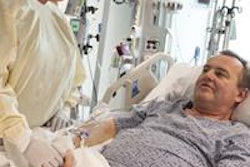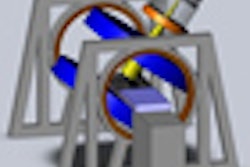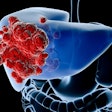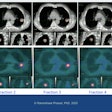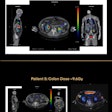Sildenafil citrate improves overall sexual function of prostate cancer patients who received radiation therapy (RT), according to trial results presented by researchers from Memorial Sloan-Kettering Cancer Center at the American Society for Radiation Oncology (ASTRO) annual meeting.
The objective of the prospective, randomized, double-blind, placebo-controlled trial was to determine if daily, adjuvant use of sildenafil citrate, a phosphodiesterase type 5 inhibitor commonly sold as Viagra, would preserve erectile function in prostate cancer patients. The drug has proved beneficial to men who have had a radical prostatectomy.
"The concept of penile rehabilitation after prostate cancer therapy revolves around preservation of corpus cavernosal endothelial and smooth muscle integrity," explained radiation oncologist Dr. Michael Zelefsky, vice chair for clinical research in the hospital's department of radiation oncology. "We wanted to see if it could help preserve erectile function after radiation therapy treatment as well."
The study included 290 patients with clinically localized prostate cancer who were treated with external-beam radiation therapy (EBRT) and/or permanent interstitial implantation. They were randomly assigned to two groups, one receiving a 50-mg dose daily and the other receiving a placebo. Medication/placebo was initiated three days before treatment and continued daily for six months, after which the drug therapy was discontinued and taken on an as-needed basis.
Patients in both groups were asked to complete the International Index of Erectile Function (IIEF) and International Prostate Symptom Score (IPSS) questionnaires before therapy and at six, 12, and 24 months after radiation.
Results from 144 patients, those who completed the surveys before therapy and for at least one additional time period, indicated that those in the sildenafil citrate group experienced improved overall sexual function compared to the placebo group at all time points: IIEF scores were 58.6 versus 49.4, 56.3 versus 48.2, and 54.9 versus 47.6, respectively. Patient characteristics including age, brachytherapy use, androgen-deprivation therapy, and baseline IIEF scores were similar among both treatment groups.
"The most significant improvements were seen at six and 12 months following treatment, with a slight dip at the 24-month mark," said Zelefsky. "This suggests that future clinical trials need to be conducted to demonstrate if a longer treatment duration can further improve patient outcomes."




